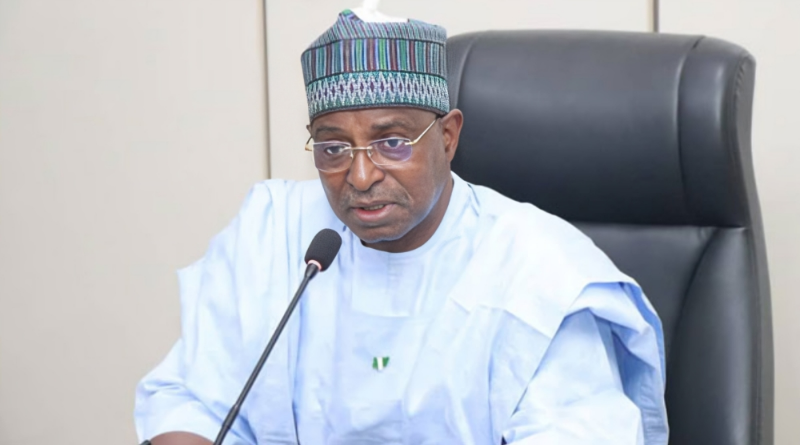Nigeria targets $74bn livestock economy by 2035 as FG, partners commit to sector transformation
Nigeria’s livestock sector came into focus on Tuesday as the Federal Ministry of Livestock Development (FMLD) convened donor agencies, international partners, and development institutions at a high-level workshop in Abuja to explore collaborative opportunities for transforming the industry.
The event, themed “Strengthening Strategic Partnerships for Livestock Transformation,” brought together key stakeholders to align strategies for sustainable growth in the sector.
Declaring the workshop open, Idi Mukhtar Maiha, minister of Livestock Development, reiterated the federal government’s commitment to repositioning the livestock industry as a catalyst for economic growth, food security, and national stability.
He said the creation of the ministry by President Bola Ahmed Tinubu in July 2024 underscored government’s resolve to transform the sector into a $74 billion industry by 2035, contributing substantially to Nigeria’s projected $1 trillion economy by 2030.
“We developed the Nigeria National Livestock Growth Acceleration Strategy (NL-GAS 2025–2035) — a comprehensive, market-oriented, private-sector-led and public-sector-enabled roadmap,” Maiha stated.
“The National Economic Council has approved this strategy, which rests on ten pillars — from livestock value chain development, feed and fodder, animal health, finance, infrastructure, and women empowerment to peace-building and social cohesion. Delivering on these pillars is not optional — it is essential.”
Highlighting early progress, the minister disclosed that the government had resuscitated over 400 grazing reserves, validated the National Animal Feeds and Fodder Policy, and established eleven trans-boundary disease control posts along international cattle corridors.
He further revealed that Nigeria had secured USD 2.5 billion in investment commitments from leading Brazilian livestock companies — including JBS, one of the world’s largest meat processors — following discussions at the G20 Summit in Brazil.
“These partnerships are catalytic,” Maiha noted. “They signal to the world that Nigeria’s livestock sector is ready for investment, innovation, and impact.”
The minister urged partners to align their support with the NL-GAS framework, saying the workshop was not merely a meeting but “a milestone to establish formal engagement mechanisms, harmonize donor programmes, and mobilize resources, technology, and expertise.”
“From the NL-GAS, choose where you want to be, what you want to do, and what legacy you wish to leave behind,” he challenged development partners. “Together, let us transform Nigeria’s livestock sector — one vision, one platform, one future.”
In her welcome remarks, Chinyere Ijeoma Akujobi, permanent Secretary of the Ministry, described the workshop as “a declaration of intent” to move from fragmented donor interventions to coordinated impact.
“Over the past two decades, donor investments have supported animal health, dairy development, and conflict mitigation,” she said. “Yet, despite these contributions, the sector remains undercapitalized vis-à-vis its potential — signalling both a gap and an opportunity.”
Citing IMF and World Bank projections that Nigeria’s economy will grow between 3.9% and 4.2% in 2025–2026, Akujobi emphasized that aligning donor investments with the NL-GAS could triple current development partner support, catalyze private co-investment, and create millions of jobs.
“This workshop is our opportunity to move from parallel projects to shared outcomes — from goodwill to coordinated impact,” she stressed. “The ministry stands for transparency, accountability, and measurable results.”
Speaking at the event, Hussein Gadain, country representative of the Food and Agriculture Organisation (FAO), commended Nigeria for establishing a dedicated livestock ministry and a clear national strategy.
“The FAO welcomes the NL-GAS as a visionary and inclusive framework,” the representative said. “We are committed to working closely with the ministry and partners to strengthen animal health systems, enhance feed and fodder production, and promote climate-smart livestock practices.”
Read also: Nigerian leaders urged to prioritise infrastructure, human capital investment
The representative also assured that FAO would continue to provide technical assistance, policy advisory, and capacity-building support to ensure sustainable implementation of Nigeria’s livestock transformation agenda.
Participants at the workshop included representatives of the World Bank, IFAD, African Development Bank, USAID, FAO, ECOWAS, and major international NGOs, among others.
Stakeholders resolved to establish a joint coordination platform for donor-government collaboration and to align upcoming projects with the NL-GAS 2025–2035 roadmap.
The event marks a major step toward realising Nigeria’s ambition of building a resilient, inclusive, and globally competitive livestock sector that contributes to food security, rural prosperity, and national peace.
The federal government reaffirmed its readiness to work transparently with all partners to ensure measurable results that will make Nigeria a regional leader in livestock and dairy production.

